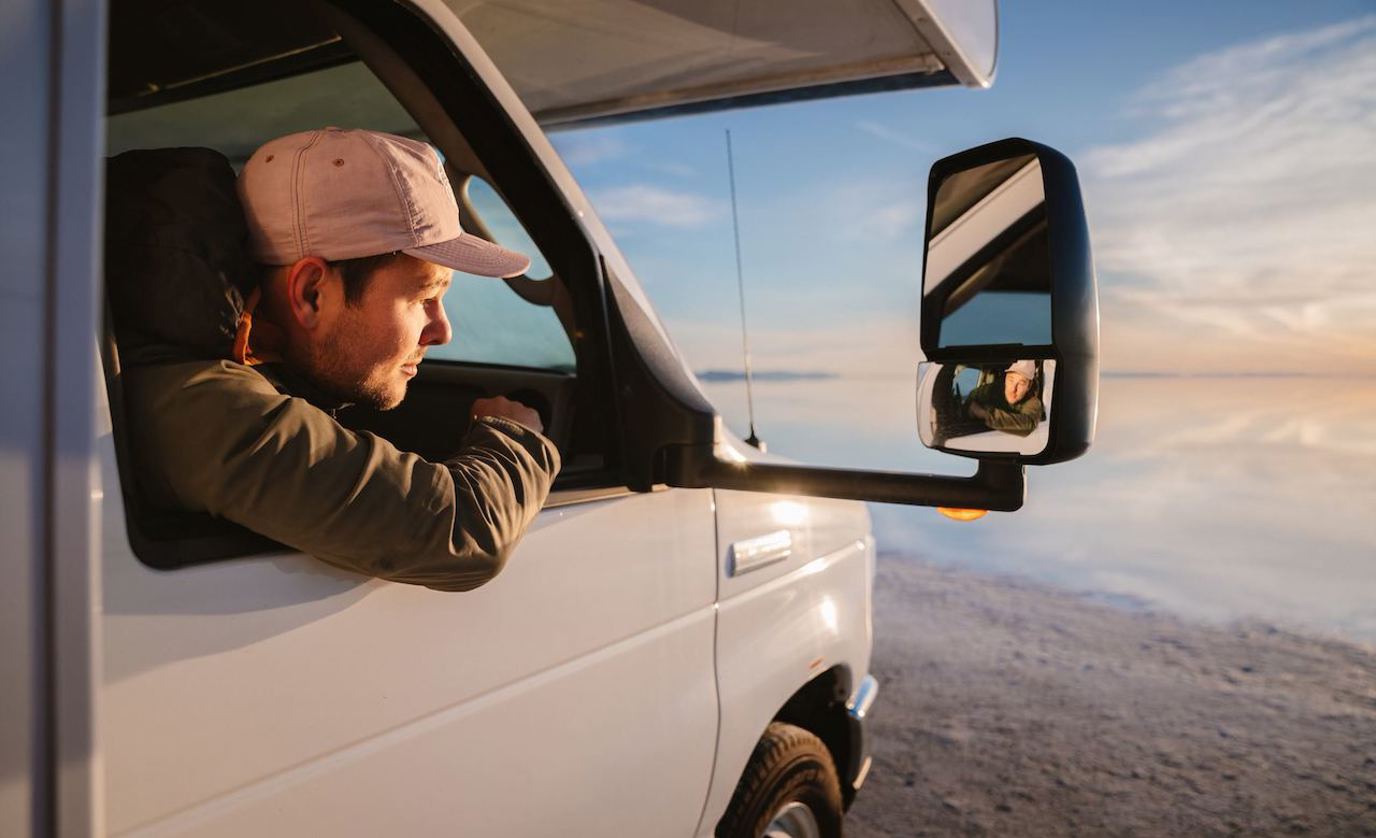
Is it hard to drive an RV? Well, without a doubt, driving an RV is not like driving your own personal vehicle. Just look at the average RV you might encounter on a highway: It is bigger, longer, and heavier than your own vehicle…even if that vehicle is the mightiest of pickup trucks. RVs just look different and drive differently than most vehicles out on the roads.
This observation might give you the impression that driving an RV is a task only the truly brave are capable of. In fact, the reality is quite different. The truth is that with sufficient practice, anyone with a license and a sense of adventure can drive an RV! Yes. That includes you!
Is It Hard To Drive an RV? No!
Let’s now take a look at what you need to know about driving an RV and how you can learn to operate one safely on your own — and get the most out of any road trip you go on.
You Need To Watch Your Turn Radius
How hard is it to drive an RV? Perhaps the biggest challenge with driving an RV is its size, especially when driving in cities. Sharp turns in cities are, generally, the rule rather than the exception — and an RV has a much larger turning radius than your average car or truck. It’s easier to make a left turn than a right turn in an RV, so at least there is that!
Tip: If you have the chance, practice driving in an empty parking lot before you really take it out on a road trip.
Keep an Eye On and Reduce Blind Spots
A longer, wider vehicle brings with it more and larger blind spots. If your mirrors aren’t adjusted properly, you risk sideswiping other vehicles on the road. Adjust your flat mirror and convex mirror (if there is one) to give yourself the widest and fullest view possible. You may want to buy a wireless observation camera to cover what mirrors cannot.
Heavier Means Harder To Control
Along with the size and length causing turning and blind spot issues, there is also the added weight of an RV, which isn’t always as evenly distributed as other vehicles. This means that longer and heavier (fully outfitted) RVs can be harder to keep control of when on the road, whether you’re driving straight or turning. You should always keep this in mind.
Give Yourself a Brake
Another factor to consider when driving an RV is that due to its size and weight, you need to give yourself more braking distance than you usually need in almost any other vehicle. When driving at high-speed limits, you build up a lot of momentum (and it can take time for an RV to build up to that speed). If you need to suddenly slam on the brakes, you might not be able to stop in time if you’re too close to other vehicles.
Give yourself room for error and circumstance when it comes to braking; figure on the length of a football field or about 300 feet. You can’t always keep that distance on busy highways, though, so if there is heavier traffic, it’s good advice to drive under the speed limit and stay in the right-side lane.
Be Aware of Your RV's Height Clearance
One of the most important things you need to think about when asking if it’s hard to drive an RV is the height clearance. RVs are not short! You need to be aware of your RV’s height clearance because with that increased height comes the chance that a low underpass or bridge could cause serious damage to your RV. Isn’t it better to avoid such scenarios?
To ensure you and your RV are traveling on roads with sufficient height clearances, utilize an RV-specific GPS system (or a similar app for your phone). Repaved roads can lower the overall clearance for an RV, but you might not know which roads have a greater chance of degraded height clearance.
An RV-specific GPS or app will send you only on roads that you can be sure are safe for your RV to travel on — with overpasses you don’t need to worry about. By all means, utilize modern technology like this when driving in an RV. You won’t regret the investment.
It's Not Hard To Drive a Cruise America RV
Once again: Is it hard to drive an RV? Not really! It just takes a little bit of getting used to. As you can see, driving an RV forces you to consider your vehicle and surroundings more than you might when driving in your personal vehicle. But, really, the fundamentals are the same. As long as you have a handle on the quirks of driving an RV, you’ll also have a stronger sense of the perks that come with driving an RV.
Speaking of the perks of driving an RV, traveling in a Cruise America RV is a perk all on its own. Cruise has a wide variety of RVs in various lengths and floor plans, and you now know you’re capable of driving any one of them! You’re ready for your next road trip adventure, so call or visit Cruise America today to get behind the wheel of an RV and get going!





